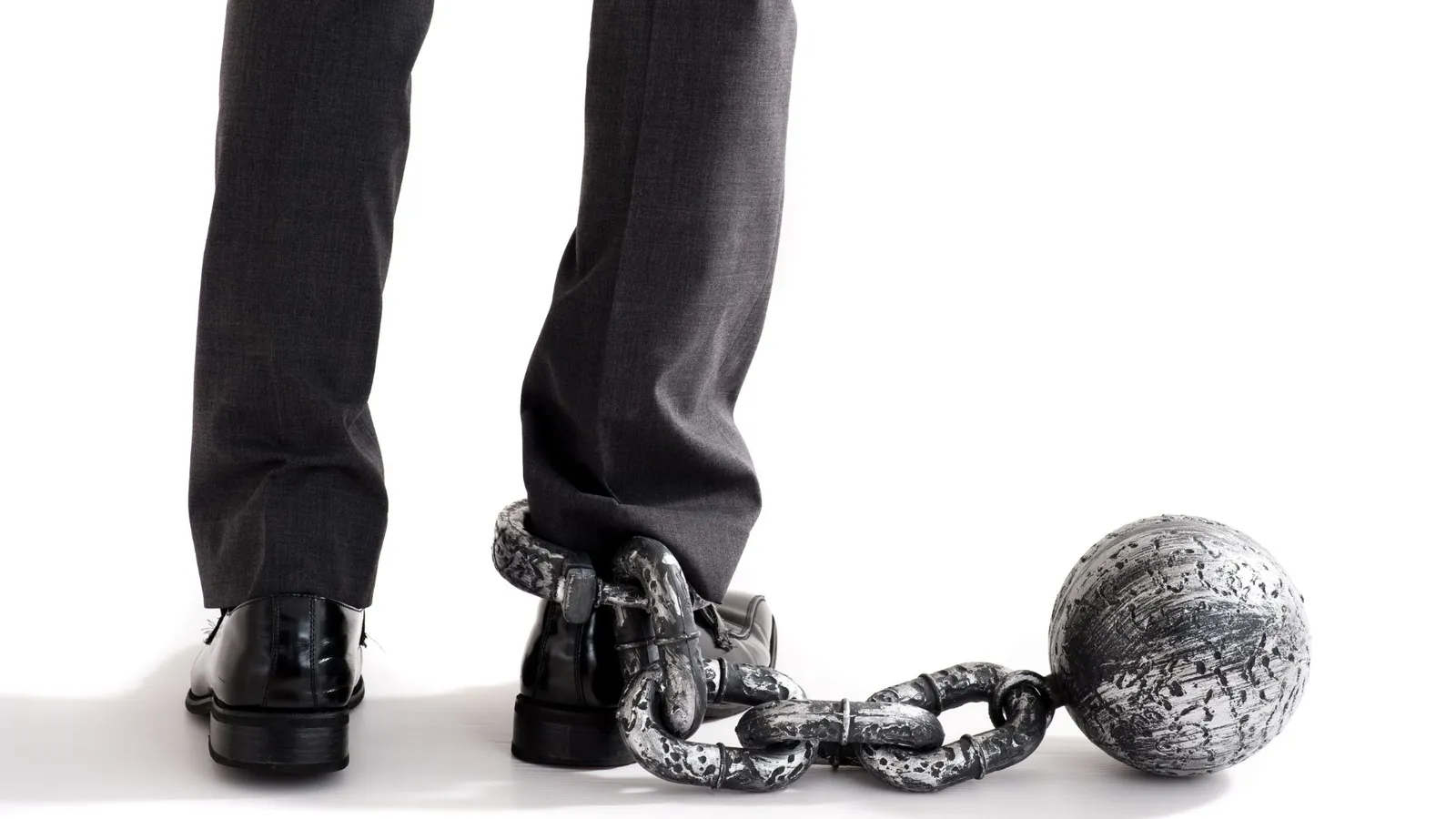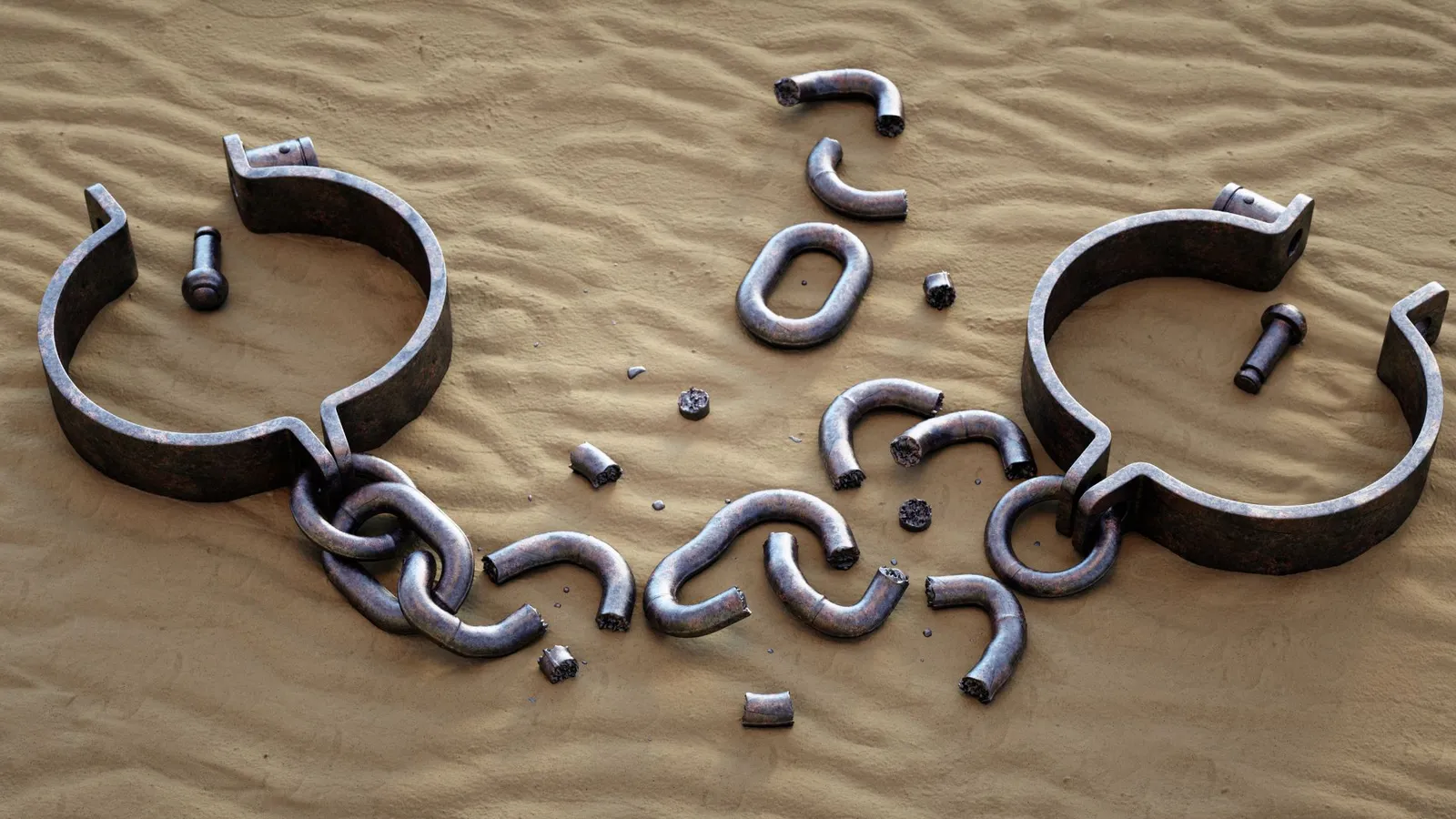The Chains of Consumption: Escaping the Grip of Materialism and Debt

The Problem
When we think of wealth, Lambos and Rolexes come to mind. But the reality is that people who actually mastered the skill of money creation think in terms of utility, not status. Buffet drives a 2014 Cadillac XTS, and Musk lives in a tiny home. They don't need to flaunt their wealth through Veblen goods, for them money is a shortcut to their goals, to new experiences, to freedom.
Poor people, on the other hand, are obsessed with status. I routinely see Section 8 tenants buy the latest iPhones every year and Uber drivers leasing new cars. The tenant whom I evicted last year for non-payment drove a brand new Porsche Cayenne - not because she could afford it, but because she wanted her friends to think that she could.
While her behavior may seem irrational, we all exhibit it to some degree. This phenomenon of chasing the Joneses is discussed in depth in the book The Millionaire Next Door. As our income grows, so does consumption - not because it has to, but because of self-imposed social pressure. We buy luxury items we dreamt of as kids, only to realize they leave us feeling empty inside.
Millionaires, on the other hand, have learned to control their desire to consume. They live below their means, and invest the difference. Many, according the the book, are blue-collar business operators, who never made more than $100k/year (admittedly a dated figure, especially if you live on the coast), but managed to accumulate a net worth of $1M+. Does that mean you're forever doomed to second-hand cars, tiny homes, and thrift stores if you want to become a millionaire? Not at all. Believe it or not, it only takes a few years to become wealthy through real estate. But you have to be smart about your expenses, and choose your battles.
The Solution

Offense & Defense
The Millionaire Next Door talks about the concept of offensive and defensive approaches to money management, comparing personal finance to a game of football, where the team has focus both scoring points and preventing the other team from scoring at the same time.
As individuals we tend to excel at one or the other, which is why it's crucial to find a partner/spouse with a complementary skillset. According to the book, those with high-paying jobs (lawyers, doctors, investment bankers) tend to be good at earning money, while bad at keeping it. Those with low-paying jobs (teachers, accountants) or frugal backgrounds tend to be good at saving money, but may not see the opportunities to make more.
The offensive approach focuses on maximizing income, while the defensive approach focuses on optimizing expenses. The book explains that average Americans focus only on the offensive portion, while the wealthy focus on both. One of the most important things you can do is set 10-20% of your income aside for investing. This is the only way to build wealth, because your W2 job will never pay you enough to comfortably retire. You have to make your money work for you.
As a measuring stick for your progress, the book suggests the following formula:
Expected Net Worth = Age * Annual Pre-Tax Income / 10
That means a 40-year old individual making $100k/year should have a net worth of at least $400k. Net worth is what provides freedom, net worth allows you to lose your job without losing sleep, or travel the world without feeling shackled to your job.
Use Money To Buy Freedom, Not Status
Humans are notorious for underestimating exponential growth. An ancient legend about the inventor of chess goes something like this:
The inventor showed his creation to the king, who was so impressed that he offered the inventor any reward he wanted. The inventor asked for a single grain of rice on the first square of the chessboard, two on the second, four on the third, and so on, doubling the amount of rice on each subsequent square. The king agreed, thinking that the inventor was a fool. But by the time they reached the 64th square, the king realized that he was the fool, because the amount of rice he owed the inventor was more than all the rice in the world.
There are many variations of the story showcasing the power of exponential growth, from asking the reader how long it will take to fill a stadium with water, to exponential growth of lilies in the pond being used to show the fallacies of "System 1" thinking in Daniel Kahneman's book Thinking, Fast and Slow.
Compound interest works the same way. Those who don't understand it pay a premium for each purchase they make and are enslaved by the credit card company. Those who do, reach financial independence as early as their 30s by leveraging real estate. Every dollar invested in real estate is worth at least $5 in the bank (thanks to government-backed mortgage).
Think about that next time your wife asks you to spend your paycheck on a $5k Cartier ring. That's $25k of real estate you could have bought, $30k if you count taxes. Not to mention these premium brands are notorious for their low resale value, because 50% of the price is the brand itself. Similar ring can be bought in Costco for under $2k. But most of us scoff at the idea of buying jewelry at Costco, not because their jewelry is inferior (it's actually on par with Tiffany and Cartier), but because the idea of buying jewelry at a discount store feels cringe. We've been brainwashed by luxury brands to pay a 150% premium for the same product, a behavior just as irrational as the one exhibited by my tenant with the Porsche.
Buy Assets With Active Income, Toys With Passive Income
Don't get me wrong, I'm not saying to abstain from luxury goods entirely. But there is a place and time for them. As long as you're working a W2 job, you're trading your time for money. Regardless of your career, you're limited both by the number of hours as well as your peak years. As you get older, you become less valuable to your employer. Your prime is the age of 30-50, when you have more experience than the younger employees seeking to replace you, but are not yet approaching your cognitive decline.
Your peak earning potential is around 50 years old, things only go downhill from there. That's a scary thought for someone who wants to live comfortably into their 90s. Add inflation into the mix, and you quickly realize that your dollars have to work harder than you. That's where assets come in.
An asset is anything that generates passive income. It can be a business, a stock, or a piece of real estate. Your car is not an asset, your jewelry is not an asset, even your home is not an asset because it doesn't generate income. Just because you're able to sell it for 2-3x what you paid for it 30 years later doesn't make it an investment. In those 30 years, you will have paid 2-3x the original price in interest, taxes, and maintenance. Assets are your rentals, because the monthly income they generate offsets your expenses.
Think in terms of passive cashflow. Your W2 is not passive, don't waste it on toys. On the other hand if you have a rental that consistently generates $2k/month (after mortgage, taxes, and repairs), you have $2k/month of disposable income for toys. $2k/month buys you a $100k car, or a $300k house (with current interest rate of ~7%). Want a million-dollar home? No problem. You just need $6k-8k/month of passive income.
You don't have to abstain from buying luxury goods, you just have to be smart about how you're financing them. Use your active income to buy freedom. Use your passive income to buy toys. Treat your balance sheet like a math problem. If you suck at math, you'll stay poor, regardless of how much you make.